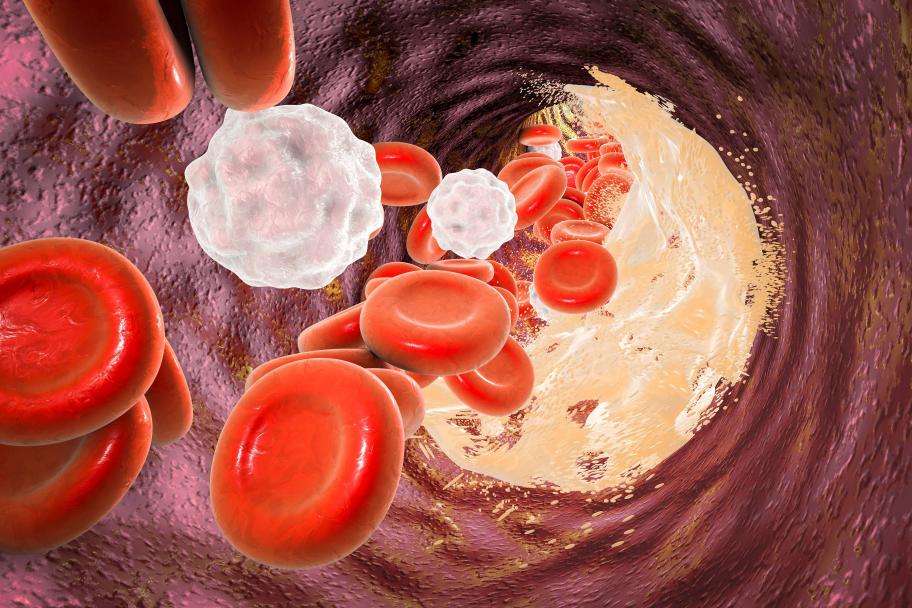In today’s fast - paced and highly competitive world, the incidence of depression is rising at an alarming rate, emerging as a significant epidemic of the 21st century. This mental health disorder not only disrupts personal lives and work but also places a heavy burden on families and society. According to the World Health Organization, by 2020, depression ranked second globally in terms of prevalence, and its disability rate is a staggering 23 times higher than that of the general population. Diet and nutrition, as it turns out, play a vital and often underrated role in maintaining good mental health.
Depression, a profoundly debilitating psychological condition, is marked by chronic emotional despondency and an enduring inability to derive pleasure from once-enjoyable activities, fundamentally impairing one's capacity for emotional engagement and daily functioning.Its complex etiology and pathophysiological mechanisms involve a series of neuroendocrine changes. At the core of its development is the deficiency of key neurotransmitters, including 5 - hydroxytryptamine (serotonin), dopamine, norepinephrine, and γ - aminobutyric acid. Among these, the inhibition of 5 - hydroxytryptamine and norepinephrine reuptake is particularly crucial. Serotonin, well - known to regulate mood, sleep, and appetite, controls numerous psychological and behavioral activities.

A variety of nutrients have been found to be closely related to depression, either as contributing factors to its alleviation or exacerbation. Eicosapentaenoic acid (EPA), a major component of fish oil and an essential Ω - 3 polyunsaturated fatty acid, has shown significant therapeutic benefits for depression patients. Research indicates that a diet low in EPA can lead to neural dysfunction. EPA’s mechanism of action in improving depressive symptoms may involve reducing the production of prostaglandins derived from arachidonic acid, which subsequently results in a decrease in brain - derived neurotrophic factor levels and/or changes in cerebral blood flow. Since EPA cannot be synthesized by the human body, it must be obtained from dietary sources such as mackerel, herring, salmon, tuna, sardines, swordfish, and whitefish.
Amino acids also play a vital role. Among the eight essential amino acids that the human body must obtain from food, tryptophan and tyrosine are particularly relevant to depression. Approximately 2% - 3% of the tryptophan in the central nervous system is used to synthesize 5 - hydroxytryptamine, closely associated with depressive moods. Adequate supplementation of tryptophan can help improve patients’ depressive states. Tyrosine, essential for brain function, directly influences mood and cognitive function due to its neuro - stimulating properties. Foods rich in these amino acids include dairy products, mushrooms, sunflower seeds, sea crabs, black sesame seeds, soybeans, pumpkin seeds, shredded pork, fried tofu, eggs, and fish slices.
Leptin, a protein hormone secreted by adipose tissue, primarily acts on the hypothalamus to reduce appetite and increase energy expenditure. Extensive experimental research and clinical investigations have shown a close correlation between changes in leptin levels and the occurrence of depression. Leptin also exhibits antidepressant activity, suggesting its potential role in regulating mood.
Vitamins and co - factors also contribute to mental well - being. Fat - soluble vitamins K and D, along with water - soluble vitamins C, B6, B12, and folic acid, are involved directly or indirectly in the synthesis of 5 - hydroxytryptamine and other neurotransmitters, thereby regulating anxiety and depressive behaviors. Coenzyme Q10, a co - vitamin, effectively helps alleviate bipolar depression in the elderly. Honokiol, a polyphenol, is an effective nutrient for treating anxiety, possibly by inhibiting cytokine production, reducing oxidative stress, and affecting plasma brain - derived neurotrophic factor levels. Resveratrol may exert antidepressant effects by activating neurotrophic factors in the hippocampus and frontal cortex, while caffeic acid protects neural function through antioxidant properties, reducing symptoms of stress, anxiety, and dementia.
Food sources for these nutrients vary. B - vitamins can be found in animal offal, lean meat, legumes, nuts, whole grains, and leafy green vegetables; vitamin C is abundant in fresh vegetables and fruits like spinach, tomatoes, chili peppers, oranges, and Chinese dates; vitamins D and K are mainly sourced from fatty fish, animal liver, egg yolks, and lean meat. Coenzyme Q10 can be obtained from red meat, nuts, unrefined vegetable oils, spinach, and broccoli, while polyphenols are present in cocoa beans, tea, soybeans, red wine, and various fruits and vegetables.

The patterns of daily living, encompassing behavioral and habitual choices, exert a substantial effect on the likelihood of developing depression, with cumulative evidence highlighting their pivotal role in modulating psychological vulnerability. Consumption of soft drinks has been associated with an increased risk of depression, with those who drink more than four cans of soda or fruit juice per day facing a 30% and 51% higher risk respectively. On the contrary, regular consumption of yogurt may help reduce the risk. Coffee and tea intake, on the other hand, are linked to a lower risk of depression. A long - term (≥15 years) tea - drinking habit, as shown in a Singaporean prospective cohort study, can reduce depression and anxiety in the elderly. Meta - analyses have found that consuming at least three cups of coffee and one cup of tea daily can decrease the likelihood of developing depression.
Probiotics, known for their benefits in treating gastrointestinal disorders and allergies and their anti - inflammatory properties, have also shown promise in depression management. A review in BMJ Nutrition Prevention & Health indicated that probiotics, whether taken alone or in combination with prebiotics, may help alleviate depressive symptoms. Research on rats with chronic restraint stress models has shown that the administration of Lactobacillus helveticus NS8 can not only regulate gut microbiota but also improve anxiety, depression, and memory, outperforming the commonly used antidepressant citalopram.
The Mediterranean diet, originating from regions like Spain and Italy, is composed of light yet nutritious foods, including fruits, vegetables, nuts, legumes, grains, moderate amounts of fish, meat, poultry, and dairy products, with rapeseed and olive oil as the main cooking oils and accompanied by moderate wine consumption. This dietary pattern has been shown to reduce the risk of developing depression. In contrast, the “Western” diet, rich in trans - fats from sources like processed meats, butter, and mass - produced pastries and fast food, is positively correlated with an increased risk of depression.

Beyond the aforementioned nutrients, other elements of dietary composition exert a significant influence on mental health: diets abundant in highly processed carbohydrates and added sugars have been identified as prominent contributors to depressive states, while alcohol consumption is associated with a potent depressive impact that exacerbates emotional vulnerability. Minerals such as selenium, zinc, iron, copper, and magnesium, as well as fresh fruits, can help improve depressive moods.
In addition to nutrition, exercise and light exposure are also crucial. For those suffering from depression or experiencing depressive moods, walking is an ideal form of exercise. It stimulates the synthesis of “vital awakening substances” in the body, maintaining optimal levels of 5 - hydroxytryptamine, dopamine, and norepinephrine in the brain. Walking or jogging for 20 - 30 minutes in sunlight five days a week can gradually alleviate symptoms such as tension, anxiety, depression, disordered thinking, abnormal eating and sleeping patterns, and fatigue.
Light exposure also affects mood significantly. When the sky is overcast, people are more likely to feel down, while sunny days tend to lift spirits. Prolonged exposure to bright light can promote the synthesis of vitamin D, which is particularly beneficial for treating seasonal affective disorder.
In conclusion, a balanced diet, regular physical activity, sufficient sunlight exposure, along with psychological therapy and social support, are all essential components in preventing and managing depression. By paying attention to these aspects, we can take proactive steps towards better mental health and a reduced risk of succumbing to this modern - day epidemic.





